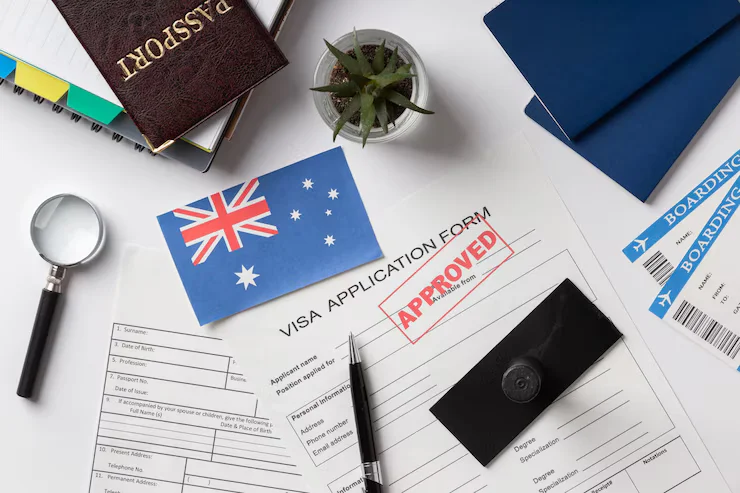Legal services play a vital role in protecting intellectual property rights in Australia by ensuring creators and businesses secure, enforce, and maximise their valuable assets. With the right legal guidance, IP owners can confidently navigate complex laws, prevent infringement, and expand their rights both locally and internationally.
Understanding Intellectual Property Rights in Australia
Intellectual property encompasses a wide range of intangible assets that have significant value. In Australia, there are several types of IP rights, each with distinct features and protections:
Copyright
Automatically protects original works, including literary, dramatic, musical, and artistic creations, as soon as they are created. No formal registration is required, although it’s recommended to add a copyright notice.
Trademarks
Used to distinguish goods and services in the marketplace, trademarks can be logos, words, shapes, or even sounds. While unregistered trademarks are protected under common law, registering a trademark with IP Australia grants exclusive rights to use, license, and assign it.
Patents
Apply to new, inventive, and useful products or processes. A patent owner is granted exclusive rights to use, sell, or license the invention. Patents must be formally registered and can last up to 20 years.
Designs
Protect the visual appearance of a product. This includes shape, pattern, or ornamentation. Design rights can last up to 10 years but require formal registration.
The legal framework for these IP types is governed by key pieces of legislation such as the Copyright Act 1968, Trade Marks Act 1995, and Patents Act 1990. Together, these laws ensure that intellectual property rights in Australia are protected against unauthorised use, infringement, and misappropriation.
Why is IP protection so important for businesses and individuals?
Simply put, your intellectual property can be one of your most valuable assets. It differentiates your brand, products, and services, giving you a competitive edge.
Whether you’re an entrepreneur, a large corporation, or a creative professional, securing your IP ensures that you retain control over your creations and innovations, and can profit from them accordingly.
Why Legal Support Is Essential for IP Protection
Navigating the process of IP protection can be complicated, especially for those unfamiliar with the legal landscape. Legal professionals are crucial in helping IP owners avoid costly mistakes and ensure their assets are properly safeguarded. Here’s why legal support is key:
Navigating the Complex Registration Processes
From trademarks to patents, the process of registering intellectual property rights in Australia can be intricate. For instance, patent applications involve detailed descriptions of inventions, along with claims that must be thoroughly examined. Any errors or oversights can result in the rejection of an application or diminished protection.
A lawyer specialising in intellectual property rights in Australia can help streamline this process, ensuring that all required documents are properly filed, deadlines are met, and the registration process is as efficient as possible.
Assessing Eligibility and Scope of Protection
Every piece of intellectual property must meet specific criteria for protection. Not all inventions, for example, are patentable, only those that are novel, inventive, and useful. Similarly, not every logo or design qualifies for trademark registration.
Legal advisors help determine whether your IP is eligible for protection, and if so, the extent to which it can be protected. They assess the strength of your claims and help you understand how broad or narrow your rights will be.
Legal Guidance on Commercialisation and Licensing
Once your intellectual property rights in Australia are protected, there are numerous opportunities for commercialisation. This could involve licensing the IP to others, selling it, or using it as collateral for financing. Legal advice is crucial when structuring these deals to ensure that you maintain control over your IP while maximising its value.
Legal experts help draft and review licensing agreements, ensuring that the terms are clear and fair. They also help prevent future disputes by ensuring that all parties understand their rights and obligations.
Preventing and Responding to Infringements
Even with robust protection, IP owners often face the challenge of infringement. Whether it’s a counterfeit product, the unauthorised use of a trademark, or a violation of copyright, the consequences of IP theft can be devastating to both small businesses and large corporations.
Common Types of IP Violations in Australia
Some of the most common forms of IP infringement in Australia include:
Trademark infringement: This happens when another business uses a mark that is confusingly similar to a registered trademark, leading to potential customer confusion or damage to the brand.
Copyright infringement: This occurs when someone reproduces, distributes, or publicly displays copyrighted works without permission. This is common in industries like publishing, entertainment, and software.
Patent infringement: When someone makes, uses, or sells a patented invention without the patent holder’s consent, it is considered infringement. This can occur in industries ranging from technology to pharmaceuticals.
Legal professionals play a crucial role in preventing and responding to these infringements. By monitoring the market, conducting regular audits, and ensuring your IP rights in Australia are up-to-date, a legal team can help you spot potential violations early on.
How Legal Professionals Assist in Enforcing Rights
Cease and desist letters: These are formal letters sent to infringers demanding that they stop violating your IP. Often, this can resolve the issue without the need for further legal action.
Litigation: In cases where cease and desist letters are ineffective, taking the matter to court may be necessary. A lawyer will represent your interests and fight for the enforcement of your IP rights.
Dispute resolution: Alternative dispute resolution methods, such as mediation or arbitration, can also help resolve IP conflicts without resorting to the formalities and expenses of a courtroom battle.
IP Strategy and Risk Management for Businesses
For businesses looking to protect their intellectual assets, a proactive approach to IP management is key. A legal professional can help craft a solid strategy that includes risk management and long-term protection plans.
Developing an IP Protection Plan with Legal Advice
Developing a comprehensive intellectual property (IP) protection plan is essential for safeguarding your business’s innovations and maintaining a competitive edge. Engaging with qualified IP professionals can provide tailored guidance to navigate the complexities of IP law. As IP Australia advises: “An IP professional can provide you with legal, financial or business advice.”
These experts can assist in identifying which aspects of your business require protection and advise on the most appropriate forms of IP rights, such as trademarks, patents, or design rights. They can also help you decide whether to register these rights or rely on common law protection.
A well-structured IP strategy ensures your assets are covered at every stage; whether you’re creating a new product, entering new markets, or dealing with potential competitors.
Conducting IP Audits and Due Diligence
An IP audit is a systematic review of your intellectual property assets. Through this process, legal professionals assess your IP portfolio to identify what’s protected, what’s at risk, and where there may be gaps in coverage.
Due diligence is often required during mergers, acquisitions, or partnerships. By conducting thorough IP due diligence, lawyers help businesses assess the value of their intellectual property, as well as any potential legal risks associated with it.
Safeguarding IP in Contracts and Agreements
When entering contracts or agreements, businesses must ensure that their intellectual property is clearly defined and protected. Lawyers play a pivotal role in drafting these agreements, whether it’s a licensing contract, an employment agreement, or a non-disclosure agreement (NDA).
They ensure that the terms reflect the true value of the IP, prevent misuse, and provide mechanisms for enforcing the IP rights if needed.
Expanding IP Protection Beyond Australian Borders
For Australian businesses looking to go global, IP protection doesn’t stop at the border. Expanding into international markets presents unique challenges, but with the right legal guidance, businesses can protect their IP rights globally.
Challenges Australian Businesses Face When Operating Internationally
One of the main challenges businesses face when expanding internationally is navigating the varied IP laws across different countries. IP rights are territorial, meaning protection in Australia doesn’t automatically extend to other nations.
Each country has its own rules and systems for registering and enforcing IP. Moreover, enforcement in foreign markets can be difficult. Some countries may have weak IP protection laws or lack the infrastructure to effectively enforce IP rights.
Strategic Use of Legal Services for Overseas IP Registration and Defence
Legal professionals can help businesses determine which international markets are most important to target and help navigate the registration process in those countries. By using strategies like the Madrid Protocol for trademarks, businesses can protect their marks in multiple countries with a single application.
For patents and designs, international agreements like the Patent Cooperation Treaty (PCT) and the Hague System provide a streamlined process for global protection. Legal experts help businesses understand the nuances of these international agreements and ensure their IP rights are adequately protected.
Leveraging International Agreements to Safeguard Rights in Key Markets
Australia is a signatory to various international IP treaties, including the Madrid Protocol, Paris Convention, and Berne Convention. These treaties provide frameworks that make it easier for Australian businesses to protect their IP in foreign countries. Legal advisors can help businesses take full advantage of these agreements, ensuring their intellectual property rights in Australia are safeguarded in key markets across the globe.
How Legal Advisors Help Navigate Foreign IP Laws and Enforcement Systems
Every country has its own set of rules for IP enforcement, and the process can often be complex. Legal professionals with international expertise can assist businesses in understanding the legal landscape in foreign markets and help enforce their rights if necessary.
Whether it’s through international litigation, mediation, or working with local authorities, legal services ensure your IP rights are upheld Legal services.
How Blue Crest Legal Services Support Innovation and Growth
Blue Crest Legal does more than just protect your intellectual property; they can also drive innovation and business growth. By securing IP rights, businesses are empowered to innovate without fear of losing their intellectual assets.
Encouraging R&D Through Legal Safeguards
Research and development (R&D) is the backbone of innovation. By securing IP protection early on, businesses can ensure that their innovations are protected throughout the development process. This not only incentivises R&D efforts but also enables businesses to fully capitalise on their new inventions.
Assisting Startups and SMEs in Securing IP
Startups and small to medium-sized enterprises (SMEs) often face resource limitations, which can make securing IP challenging. Legal professionals can offer tailored advice and affordable solutions to help these businesses navigate the complexities of IP protection without draining their budgets.
Building Brand Value and Competitive Advantage
A strong IP portfolio is a valuable asset that can increase a business’s market value and help establish a competitive advantage. Legal services help businesses leverage their IP to build brand recognition, increase market share, and attract the Legal services investment.
Key Takeaways
Legal services are critical in protecting and maximising the value of intellectual property rights in Australia. By providing expert guidance through the registration process, responding to infringements, and helping businesses manage their IP portfolios, legal professionals ensure that creators and businesses can capitalise on their innovations. Proactive legal support not only mitigates risks but also empowers businesses to thrive in a competitive global market.
Whether you’re looking to protect a new invention, expand internationally, or simply ensure your creative works are safeguarded, the right legal advice can make all the difference.







